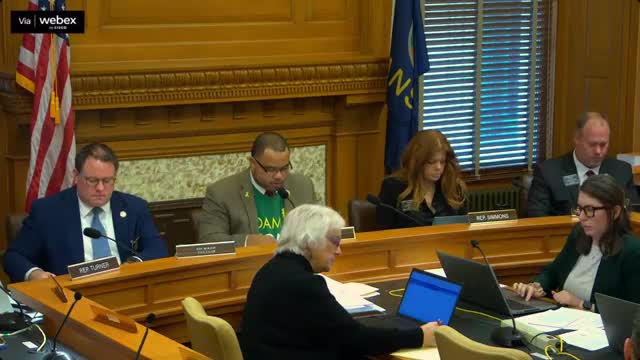Committee advances IT and AI bills; House votes remove HB 2271 sunset, move HB 2270 and ban certain foreign-controlled AI on state devices
Get AI-powered insights, summaries, and transcripts
Subscribe
Summary
The Committee on Legislative Modernization on Feb. 10 heard several IT- and cybersecurity-related bills, took proponent and neutral testimony, debated statutory carve-outs for the Judicial Branch and legislative IT, and forwarded multiple bills for further action.
The Committee on Legislative Modernization on Feb. 10 heard several IT- and cybersecurity-related bills, took proponent and neutral testimony, debated statutory carve-outs for the Judicial Branch and legislative IT, and forwarded multiple bills for further action.
At the hearing the committee considered technical briefings, proponent testimony and neutral comments before taking votes on four bills that directly affect state IT governance, cybersecurity responsibilities and the use of certain foreign-controlled artificial intelligence platforms on government devices.
Nut graf: Committee members voted to work and to pass several measures affecting how the state manages cybersecurity and acquires cloud and telecommunication services; the most contested item was House Bill 23-13, which would bar access on state-owned devices to AI models “controlled directly or indirectly” by a listed set of foreign countries.
Key outcomes and motions
Votes at a glance:
- House Bill 2,271 — Remove sunset on SB 291 provisions and make centralization permanent: Committee voted to work and then moved the bill favorably for passage. Recorded “no” votes were entered for Representatives Simmons, O'Rourke Paeser, Carr and Weigel (no tally provided in the transcript).
- House Bill 2,313 (listed in session materials as 23-13) — Prohibits use of artificial intelligence platforms of concern on state-owned devices/networks: Committee heard proponent testimony from outside experts and State Armour representatives, received written opposition from NetChoice, debated exceptions for law enforcement and cybersecurity work, and ultimately moved the bill favorably for passage. Representatives Simmons and Carr asked to have their “no” votes recorded. The committee did not adopt suggested amendments from opponents during the session.
- House Bill 2,270 — Authorizes the Chief Information Security Officer to receive audit reports and updates statutes about services the Executive Branch Chief Information Technology Officer provides: The reviser summarized changes to KSA sections (including amendments to KSA 46-11-35; KSA 75-47-04; KSA 75-47-05; KSA 75-47-09; KSA 75-47-10; and KSA 75-72-05). The Judicial Branch requested explicit carve-outs for sections 3 and 4 to preserve judicial autonomy for cloud and telecommunications procurement; the committee voted on, and rejected, an amendment to exempt the Judicial Branch, then moved HB 2,270 favorably for passage.
- House Bill 2,060 — Committee substituted updated language (nomenclature changes such as renaming “Office of Judicial Agency” to “Office of Judicial Administration”), approved the substitute and moved the bill as amended; the committee approved the substitute and then moved the bill forward.
Discussion and points of contention
Testimony and questions emphasized modernizing statutory language (several statutes still reference mainframe-era terms), definitions for cloud computing, and how the Executive Branch CTO and CISO roles should interact with agency procurement. The Judicial Branch requested clarifying language so that sections on cloud procurement and telecommunication services would not be read to apply to courts and regent universities. Committee members opposing immediate floor action repeatedly asked for more time to review materials that some said were not yet posted to the committee S drive.
Proponents of the AI ban (HB 2,313) cited data-privacy and national-security concerns tied to foreign-adversary-controlled platforms and past state and federal action on TikTok as precedent. Opponents, in written testimony, urged caution about sweeping platform bans and asked for narrower language and additional study.
Ending: The committee completed final action on the bills it had heard that day and forwarded them for further consideration on the House floor; members who objected to the pace asked for greater time to consult constituents and staff before final floor votes.
